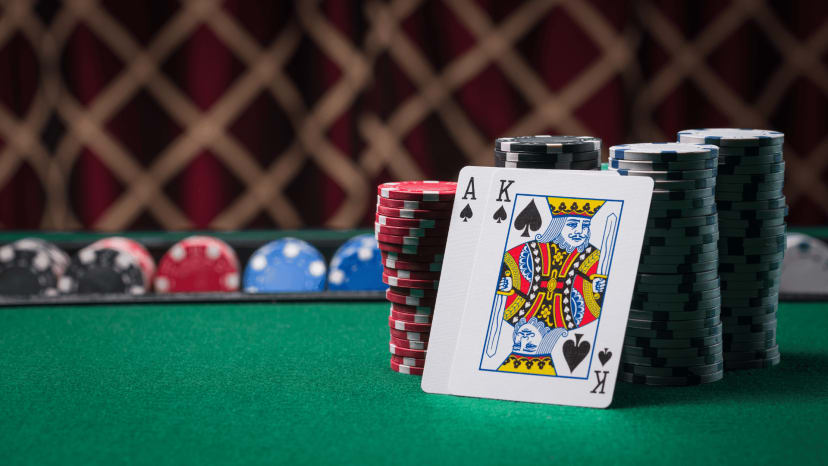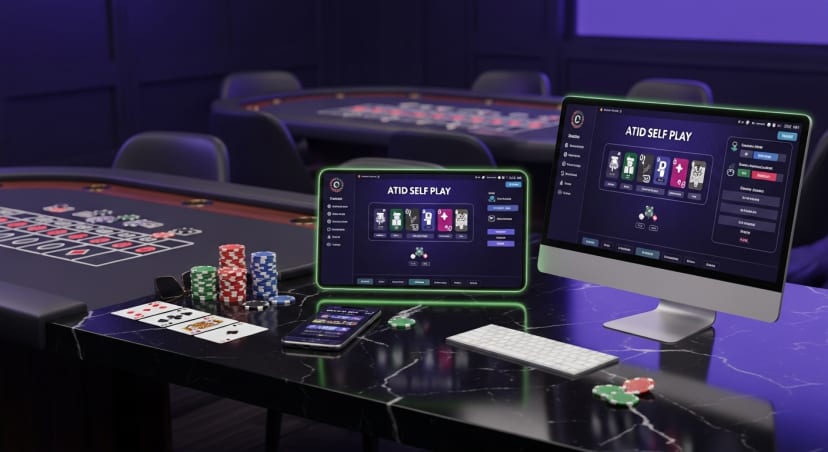Poker Life Lessons Applicable in Real Life Situations

Life, for many in Nigeria, is a series of calculated risks, much like a game of cards. To get ahead, you need to assess situations, make smart decisions, and stay consistent. While life doesn't have a manual for learning from mistakes, playing poker offers valuable lessons you can apply beyond the card table. Here are some essential life skills you can pick up from the game of poker.
Lesson #1: The Virtue of Patience
Many casino enthusiasts in Nigeria are initially shy of online casino poker. They find slots and roulette more appealing, perhaps because you just spin and hope for the best. Beginners often think poker is too complex compared to these games of pure chance.
It's true that mastering poker requires a specific skill set, whether you're playing at a physical casino or on top online casinos in Nigeria. But with patience and dedication, you'll soon find yourself winning more poker hands than you might spinning a slot machine. Becoming a skilled poker player takes time and consistent practice. The key life lesson here? Patience and commitment are crucial for success in any endeavour.
Lesson #2: Stay Focused and Disciplined
Unlike games that rely solely on luck, poker demands discipline. You must concentrate on the game, play each hand strategically, and keep track of the cards being dealt. Since you can't control the cards you receive, don't waste mental energy worrying about it.
This principle applies directly to life in Nigeria. You'll face challenges you can't control. Instead of blaming circumstances, focus your energy on finding solutions. For instance, if you lose a job, don't dwell on it; get proactive and start your search for a new opportunity!
Lesson #3: Embrace Calculated Risks
You've likely seen passive poker players who are hesitant to make bold moves. While this might save them from big losses sometimes, they often end up losing more in the long run because they miss out on significant gains.
On the other hand, bold players often stand to win those massive pots that conservative players never get close to. The life lesson? Taking calculated, bold risks can lead to big rewards. Remember, as they say, fortune favours the brave!
Lesson #4: Bluffing - Use Wisely
Bluffing is a common term when playing poker at casinos. It means camouflaging a weak hand to look strong and vice-versa. In return, other players on the table can feel intimidated by your moves and fold. But it doesn’t always work when playing against seasoned pros who can easily read your actions.
The same applies in life. Although some fake it till they make it, this will only harm them in the long run. You can go on impressing the whole world with a flamboyant lifestyle, but you’re suffering in silence. So, don’t display a fake character just for public relations. Your mum or partner will likely know you’re faking it!

Lesson #5. Bankroll Management is Critical
First, this point cuts across all gambling activities, including sports betting. In online poker, things often go south, and players lose a lot of funds. So, to effectively absorb the shocks of losing, creating a gambling budget is paramount. Divide it into smaller daily, weekly, or even monthly gambling units.
Similarly, life is all about managing finances. It’s possible to get carried away during a payday and blow half your pay on impulse buying. Therefore, budget your funds and only purchase what you need. Don’t buy a sleek Ferrari with all your life savings when you know that hospital insurance and other bills haven’t been settled.
Lesson #6. The Ability To Calculate Risk
Whether it’s in poker or in business, it’s important to get good at calculating and managing risk.
Do you understand the trade-offs? Would you bet all your money on a bad hand? You shouldn’t – and you wouldn’t in business either. Both poker and business are unpredictable, which makes measuring potential gains and losses, factoring in every possibility, and reflecting on the types of risk involved key to making the right move – whether that has to do with a bluff, raise, or fold, or with marketing decisions, budgeting allocations or project plans.
Both at the poker table and in the boardroom, risk calculation involves performing some quick math, making assessments, and using your instinct.
Lesson #7. Reading People Is Very Important
Reading people leans into negotiation. These are two factors that are helped by an ability to function well in business, poker, and life. When you play poker online or at a land-based casino, to be able to stay one step ahead, you must be able to anticipate the other player’s moves, tells, and weaknesses.
With business, whether it’s colleagues, customers, or competitors, reading people is undoubtedly an essential skill.
Understanding people and being able to assess the situation clearly allows you to engage in a meaningful way, get through to people, motivate and inspire, and respond in the best way – whether it’s seeing the potential of an employee and placing them in the right position, selling to a potential client, or while talking with an occasional interlocutor.
Lesson #8. Always Learning
Learning is a continuous process in online casino poker. Even the most decorated players typically find themselves in sticky scenarios where they must figure out a quick solution. For example, a “fish” on the table can pull a fast one on those overrated pros, leaving them in shock.
Life is full of surprises, sometimes from the least expected source. But by now, you should know that the solution is never far away. It’s common for a teacher to learn a thing or four from their student. So, in conclusion, always be attentive and give a listening ear.
Conclusion
Poker is definitely not your usual casino game. This is evidenced by John von Neumann, an American mathematician and computer scientist who applied poker bluffing in politics, warfare, psychology, and other fields of study.
But the good thing is that you don’t need a big budget and a library to apply these poker life lessons. Make more calculated moves, learn other people’s behaviors, and have a budget for everything. Overall, there’s more to poker than winning and losing.
FAQ
How Can Playing Poker Improve Your Decision-Making Skills in Everyday Nigerian Life?
Poker can really sharpen your decision-making skills because it teaches you how to quickly and accurately size up situations. You learn to read scenarios, understand the odds, and make choices even when you don't have all the information. These skills are super useful in daily life here in Nigeria, whether you're negotiating a price at the market or making important decisions at work. It's all about thinking on your feet and making smart choices, even when things are uncertain.
What Poker Strategies Can Help You Manage Your Personal Finances Better?
Poker teaches you to be disciplined with your money and to assess risks carefully. You learn how to manage your bankroll, avoid making rash decisions, and understand the importance of strategic investments. If you apply these lessons to your personal finances, it can help you with budgeting, saving, and making wise financial choices. Think of it like knowing when to 'shine your eye' and take a calculated risk, and when to play it safe with your 'kobo kobo'.
How Does Weighing Risk vs. Reward in Poker Translate to Real-Life Choices?
In poker, you're always balancing the potential risk against what you could gain. This idea is really useful in real life, especially when it comes to things like career moves, investments, and even relationships. It teaches you to think about the possible outcomes of your actions and to make choices that balance the risks with the potential for good results. It's like deciding whether to invest in that new business venture – is the potential profit worth the risk?
Can Playing Poker Help You Control Your Emotions and Build Resilience in Life?
Poker players have to learn how to manage their emotions so they don't 'tilt' – which means making bad decisions because they're frustrated or angry. This emotional control is super important in real life. It helps you stay calm under pressure, think clearly when things get tough, and bounce back from setbacks. The resilience and emotional regulation you learn from poker can help you handle stress better and solve problems more effectively. It's about keeping your head even when things are 'scattered'.














